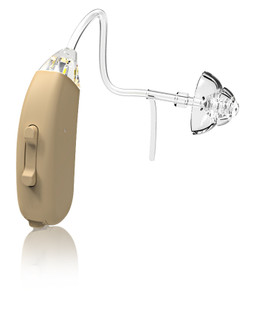The Impact of Hearing Aids on Mental Health: A Closer Look at the Research
Posted by DR Paul on Jan 11, 2024
For those who struggle with hearing loss, hearing aids have been an incredible innovation, allowing individuals to regain the ability to hear well and better connect to the world around them. While there is no denying the clear benefits of hearing aids when it comes to improving hearing, recent research has also delved into the positive impact they may have on mental health. In this article, we will explore the latest findings on how hearing aids can positively impact mental health, providing users with much-needed emotional support and better overall well-being.
The Impact of Hearing Aids on Quality of Life:
Multiple studies have shown the ability of hearing aids to improve quality of life for users by providing better communication and social interaction. Social isolation and loneliness are known risk factors for mental health problems such as depression and anxiety, and hearing loss can often exacerbate these feelings. In contrast, the use of hearing aids has been linked to improved communication and socialization, which in turn can enhance one's well-being and overall quality of life.
The Link Between Hearing Aids and Cognitive Function:
Hearing loss can also impact cognitive abilities, and recent research has suggested that hearing aids may help to mitigate this effect. One study found that using hearing aids could improve cognitive scores in older adults with hearing loss, suggesting that hearing aids may have benefits beyond improved hearing alone. Better cognitive function is linked to better mental health outcomes, including decreased risk of dementia, depression, and anxiety.
The Role of Hearing Aids in Reduced Stress:
Hearing loss can be extremely stressful for those experiencing it, leading to feelings of anxiety, frustration, and a lack of control. Research has suggested that using hearing aids can reduce stress levels by allowing individuals to better engage in social situations and communicate more effectively. Additionally, simply being able to hear more clearly can help to alleviate the stress of trying to discern what others are saying, reducing the cognitive load and mental strain associated with hearing loss.
Hearing Aids and Overall Satisfaction with Life:
Several studies have found a link between the use of hearing aids and increased satisfaction with life overall. By improving communication, enabling better social interaction, and reducing feelings of social isolation, hearing aids have the potential to positively impact individuals' mental health and sense of well-being. One study found that hearing aid users reported higher levels of life satisfaction than those with hearing loss who did not use hearing aids, further supporting the positive impact of hearing aids on mental health.
Addressing Stigma and Emotional Support:
For many individuals, hearing loss can be accompanied by feelings of stigma or shame, which can complicate the experience of hearing loss and exacerbate feelings of loneliness and social isolation. Addressing these negative feelings and providing emotional support is an important aspect of caring for individuals with hearing loss. Hearing aid use can play a role in reducing stigma around hearing loss and improving overall emotional well-being.
The evidence suggests that beyond the obvious benefits of hearing aids in improving hearing, hearing aids can also have a positive impact on mental health and well-being. By improving communication, reducing social isolation, and providing emotional support, hearing aids have the potential to enhance users' overall quality of life and reduce the risk of adverse mental health outcomes such as depression, anxiety, and cognitive decline. For individuals with hearing loss, utilizing hearing aids can therefore be a vital step in caring for their long-term mental health and well-being.










